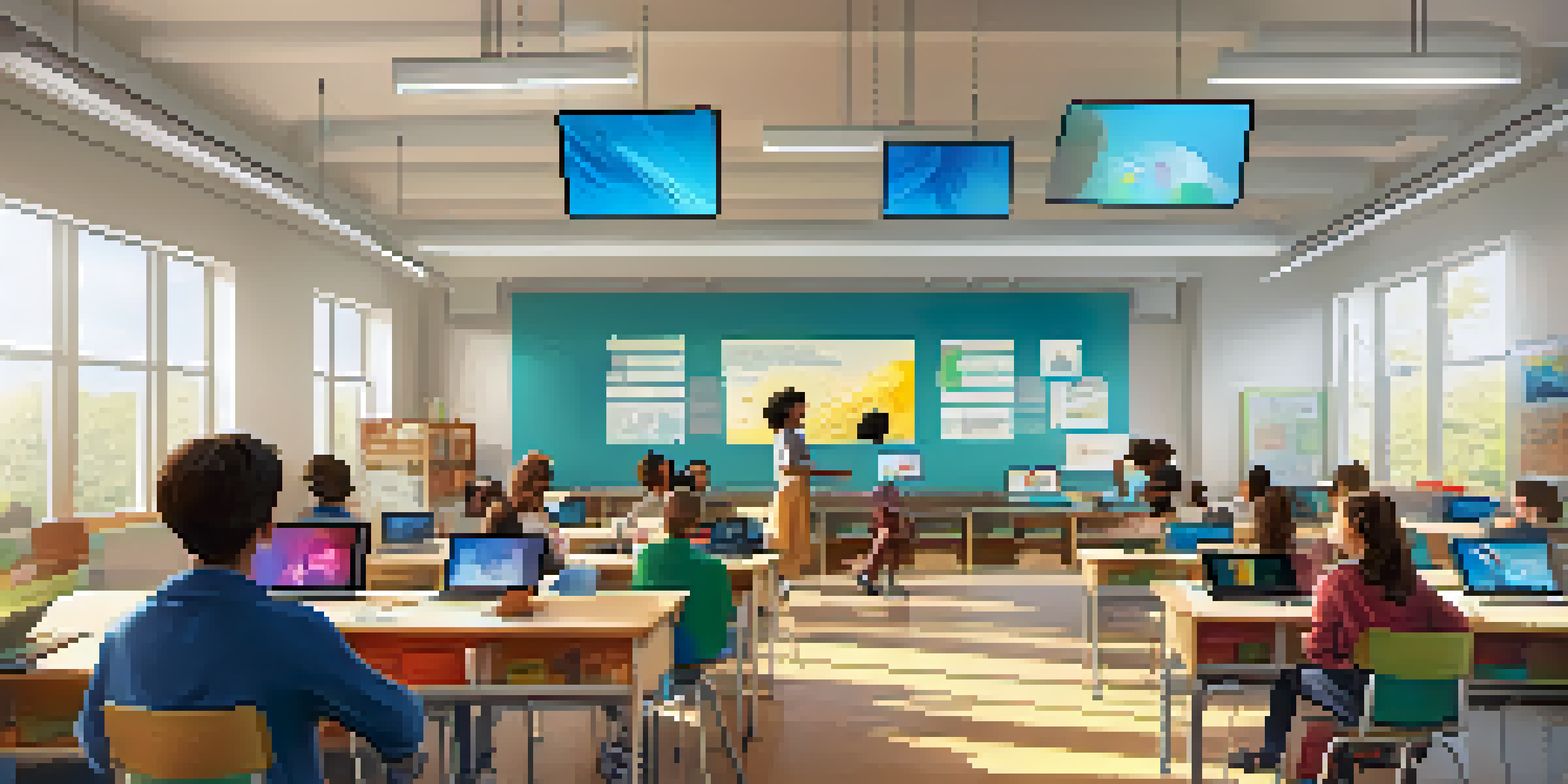Education and Workforce Development in St. Louis

The Role of Education in St. Louis' Workforce Development
Education plays a pivotal role in shaping the workforce in St. Louis. It equips individuals with the skills and knowledge necessary for various industries, ensuring they can meet the demands of local employers. With an emphasis on both technical skills and soft skills, educational institutions are tailoring their programs to better serve the community's needs.
Education is the most powerful weapon which you can use to change the world.
Local colleges and universities are collaborating with businesses to create curricula that align with workforce demands. This partnership not only enhances the relevancy of education but also helps students secure internships and job placements post-graduation. Such initiatives foster a strong connection between academia and industry, ultimately benefiting the local economy.
Moreover, continuing education programs are essential for adult learners looking to upskill or transition into new careers. By offering flexible learning options, St. Louis is ensuring that education remains accessible, allowing individuals to thrive in an ever-evolving job market.
Key Educational Institutions in St. Louis
St. Louis is home to several key educational institutions that contribute significantly to workforce development. Schools like Washington University and St. Louis Community College offer diverse programs aimed at addressing both academic and vocational training needs. These institutions are not only focused on traditional degrees but also on certifications that can lead directly to employment.

Vocational schools in the region provide hands-on training in high-demand fields such as healthcare, technology, and manufacturing. By focusing on practical skills, these schools prepare students for immediate entry into the workforce. This approach is crucial, especially in fields where there is a noticeable skills gap.
Education Fuels Workforce Growth
Education is essential in equipping St. Louis residents with the skills needed to meet local employers' demands.
Additionally, public schools are increasingly integrating career and technical education (CTE) into their curricula. This allows students to explore various career paths while still in high school, setting them up for success in their future endeavors.
Workforce Development Initiatives in St. Louis
St. Louis has implemented various workforce development initiatives to address the city's employment challenges. Programs like St. Louis Works aim to connect job seekers with training and employment opportunities, ensuring that individuals are equipped to meet the needs of local employers. These initiatives often focus on underserved populations, helping to bridge the gap in access to education and employment.
The future belongs to those who believe in the beauty of their dreams.
Partnerships between government agencies and local businesses are also key to these efforts. By working together, they can identify skills shortages and create targeted training programs to prepare the workforce for future demands. This collaborative approach has shown promising results in improving job placement rates.
Furthermore, networking events and job fairs are regularly organized to connect job seekers with potential employers. These events not only provide valuable resources but also foster a sense of community among participants, making the job search less daunting.
The Impact of Technology on Education
Technology has revolutionized education in St. Louis, making it more accessible and interactive. Online learning platforms and resources have become increasingly popular, allowing students to learn at their own pace and convenience. This flexibility is particularly beneficial for adult learners who may have work or family commitments.
In addition to traditional classroom settings, educational institutions are incorporating technology into their curricula. This includes using simulations and virtual reality to provide immersive learning experiences, especially in fields like healthcare and engineering. Such innovations not only enhance understanding but also appeal to younger generations who are tech-savvy.
Collaboration Enhances Learning
Local educational institutions are partnering with businesses to create relevant curricula and job placement opportunities.
Moreover, technology is playing a vital role in bridging the skills gap in the workforce. By offering online courses and certifications, individuals can quickly gain the skills needed for in-demand jobs, making them more competitive in the job market.
Support for Underrepresented Groups
St. Louis is committed to supporting underrepresented groups in education and workforce development. Various nonprofits and community organizations focus on providing resources and mentoring to help these individuals navigate their educational and career paths. This support is crucial, as it empowers individuals who may face barriers to success.
Programs specifically aimed at women and minorities are increasingly prevalent, addressing the unique challenges these groups encounter. By offering scholarships, internships, and career counseling, these initiatives pave the way for greater inclusion in the workforce. It's not just about education; it's also about creating a supportive environment.
Additionally, partnerships between educational institutions and community organizations help ensure that resources reach those who need them most. This collaboration fosters a holistic approach to workforce development, recognizing that education is only one piece of the puzzle.
The Future of Education and Workforce Development
Looking ahead, the future of education and workforce development in St. Louis appears promising. As industries evolve, educational institutions are adapting to meet changing demands, ensuring that students are prepared for the jobs of tomorrow. This adaptability is crucial in a rapidly changing economy where new technologies and job roles are constantly emerging.
Furthermore, ongoing collaboration between educational institutions, businesses, and government will be essential. By maintaining open lines of communication, stakeholders can quickly respond to shifts in the job market and develop relevant training programs. This proactive approach will help St. Louis remain competitive in the broader economic landscape.
Support for Diverse Learners
St. Louis initiatives focus on empowering underrepresented groups through resources and mentorship in education and career paths.
Ultimately, the goal is to create a workforce that is not only skilled but also resilient. By investing in education and workforce development, St. Louis is setting the stage for a vibrant economic future, where everyone has the opportunity to succeed.
Conclusion: A Collaborative Path Forward
In conclusion, the synergy between education and workforce development in St. Louis is integral to the city’s growth. As various stakeholders come together to address local needs, there is a collective commitment to creating a more skilled and adaptable workforce. The initiatives in place today will lay the groundwork for a brighter tomorrow.
By embracing technology, supporting underrepresented groups, and fostering partnerships, St. Louis is not just preparing individuals for jobs; it’s building a community where everyone can thrive. This collaborative path forward highlights the importance of education as a cornerstone of economic development.

As the landscape continues to evolve, the focus on education and workforce development will remain vital. With ongoing efforts and a shared vision, St. Louis can continue to cultivate a robust workforce ready to meet the challenges of the future.